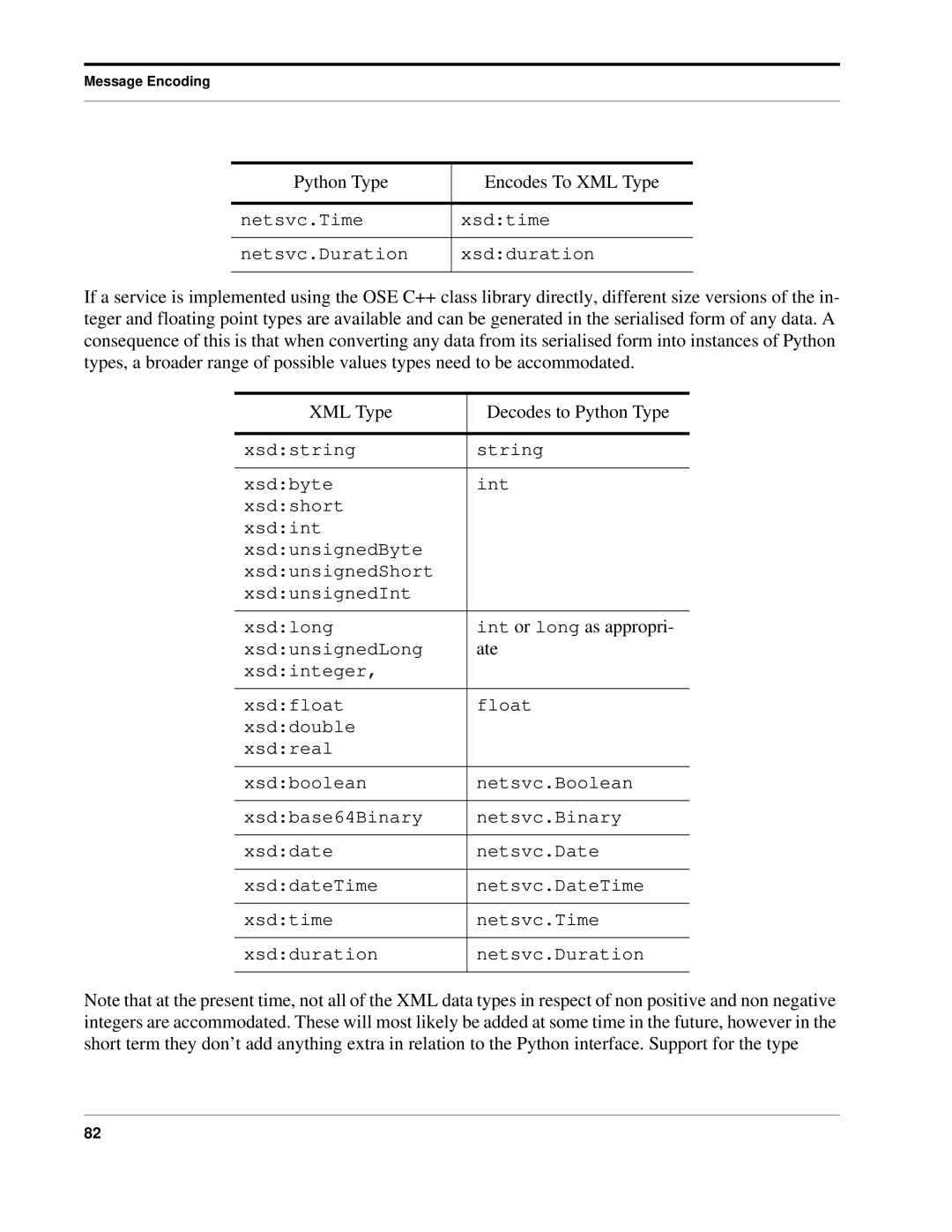
Message Encoding
Python Type | Encodes To XML Type |
|
|
netsvc.Time | xsd:time |
|
|
netsvc.Duration | xsd:duration |
|
|
If a service is implemented using the OSE C++ class library directly, different size versions of the in- teger and floating point types are available and can be generated in the serialised form of any data. A consequence of this is that when converting any data from its serialised form into instances of Python types, a broader range of possible values types need to be accommodated.
XML Type | Decodes to Python Type |
|
|
xsd:string | string |
|
|
xsd:byte | int |
xsd:short |
|
xsd:int |
|
xsd:unsignedByte |
|
xsd:unsignedShort |
|
xsd:unsignedInt |
|
|
|
xsd:long | int or long as appropri- |
xsd:unsignedLong | ate |
xsd:integer, |
|
|
|
xsd:float | float |
xsd:double |
|
xsd:real |
|
|
|
xsd:boolean | netsvc.Boolean |
|
|
xsd:base64Binary | netsvc.Binary |
|
|
xsd:date | netsvc.Date |
|
|
xsd:dateTime | netsvc.DateTime |
|
|
xsd:time | netsvc.Time |
|
|
xsd:duration | netsvc.Duration |
|
|
Note that at the present time, not all of the XML data types in respect of non positive and non negative integers are accommodated. These will most likely be added at some time in the future, however in the short term they don’t add anything extra in relation to the Python interface. Support for the type
82
